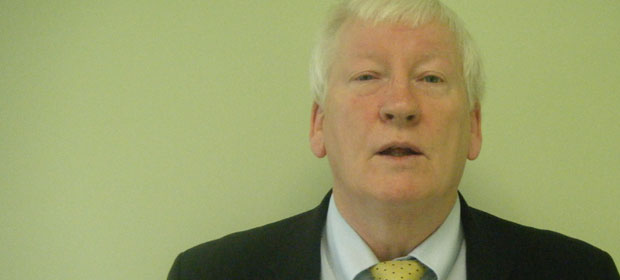“In bringing about change, trust must be earned and the key responsibility is to communicate relentlessly and honestly”, HSE Area Manager, Leo Kinsella told the Forum.
There was a very significant increase in the population of Cavan and Monaghan between 2006 and 2011, so they were required to provide for a growing need from diminishing resources, HSE Area Manager, Leo Kinsella told the Forum.

“There is the commitment to do this and staff recognise the PSA as an opportunity to consolidate progress and keep moving. We have asked staff to give us ideas – none to big or too small – and we have asked them to talk to their managers and to customers. We have got some really good feedback, which has translated into practical service improvements”.
A Paediatric Assessment Unit opened in July to provide appropriate paediatric assessment for children along with their parents. It was achieved from within existing resources.
The Intellectual Disability Service had managed to maintain its level of service, despite 15 staff members leaving.
There had been a significant decrease in absenteeism.
Fourteen Primary Care Teams had been established in Cavan/Monaghan. This involved re-deployment, integration of staff across sectoral, organisational and professional boundaries. A project management approach with leadership and consultation at all levels was used to achieve these.
The centralisation of supplies function in HSE Monaghan had resulted in visible improvement in services for customers and staff.
A Paediatric Assessment Unit opened in July to provide appropriate paediatric assessment for children along with their parents. It was achieved from within existing resources
A new purpose built acute unit, centralising mental health services across two units had been completed in Cavan General Hospital and would probably open in early October. This unit would provide 15 acute admission beds and would lead to the closure of 11 beds in St. Davnet’s Hospital, Monaghan. This change had been facilitated by the full involvement of clinicians, unions and management. Critically there was a high level of clinical leadership.
The centralisation of the catering function in HSE Monaghan had resulted in a reduction in staff numbers from 38 to 29 (via the exit package) and it was hoped it would generate €200,000 a year in savings.
“In bringing about change, trust must be earned and the key responsibility is to communicate relentlessly and honestly. There is a reluctance by some staff to change work practices, or patient activity profile changes within their area are seen as a loss of service. Project management and a collaborative approach are essential. Change fatigue and the apparent scale of the challenge is an issue. The delivery of projects on a cost neutral basis is a compelling operational principle,” said Kinsella.
“A significant cultural shift is required, including recognition of the personal journeys for those moving from a single agenda to a collaborative agenda – those with executive accountability and responsibly of the entire client patient journey must be at the table. Safety and effectiveness of the client pathway must become a more shared responsibility and people must become more tuned into other points of contact along the journey. Dealing with multiple stakeholders requires patience, tolerance and a willingness to solve problems in a pragmatic way.
“The project team must demonstrate a considerable level of risk taking, particularly in relation to outcomes required. They must also demonstrate a significant level of courage and decide that no individual, or group, professional, political, community or otherwise, will dictate to them. Acute hospitals and the primary care systems need to know how each other works. Having the PSA in an overarching context is helpful.”

